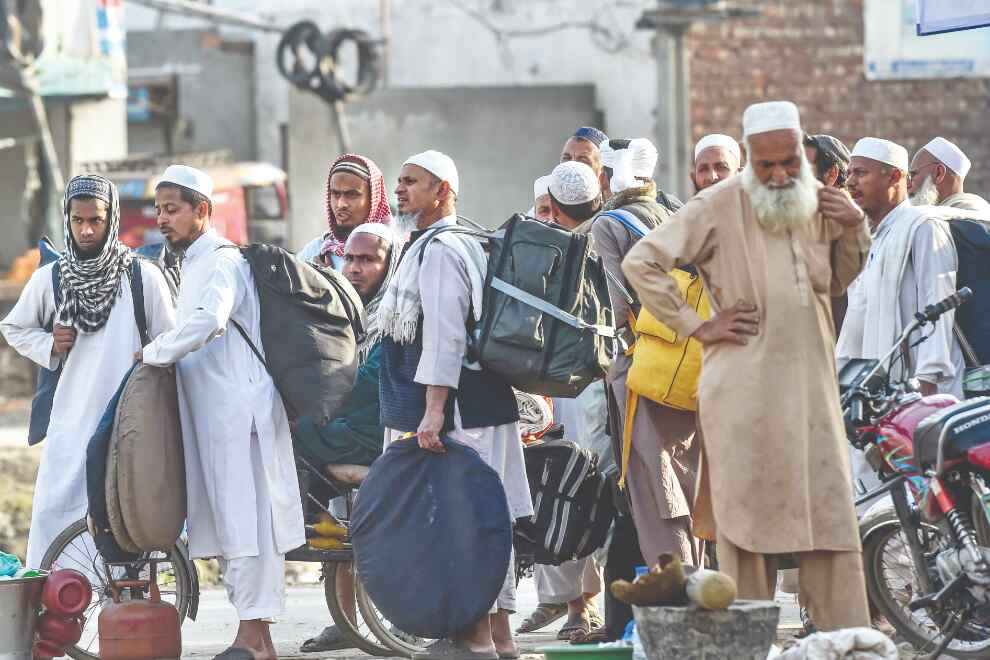Indictment of hate
The acquittal of all foreigners who attended Tablighi Jamaat event shows how quick we, and even the government, are to cast aspersions based on religion

We are quick to demonize, swift to lay blame, and deft in passing judgements. And we do all this equipped with half-baked information, armed with malicious WhatsApp forwards and fake news. Our emotions fanned by communal disharmony, that is now too quickly sown in our hearts and minds, displacing the age-old practice of unbiased, if not intolerant, reactions. Oh! How much we hate today! The eagerness with which we jump to conclusions would put steeplechasers to shame. And months later, when we are proven wrong, our claims stamped as baseless, our words full of hatred, promoting religious sectarianism, do we actually apologise? The colossal damage was already done; the delicate fabric of our society ruptured a bit more.
Months after a Tablighi Jamaat event in Delhi's Nizamuddin was villainised for purportedly leading to a spike in Covid-19 cases and the arrest of foreign nationals, the Chief Metropolitan Magistrate Arun Kumar Garg has not only freed the foreigners but stated that there was no proof of their presence at the markaz. The Indian government had accused the congregation of spreading the virus and blacklisted over 950 foreign nationals. 900 of them accepted guilt as part of a plea bargain. Eight of the 44 who refused to admit guilt were acquitted in August, with the remaining gaining freedom this week. Worryingly the Chief Metropolitan Magistrate's court observed, "None of them was present at the markaz on the relevant period and they had been picked up from different places to maliciously prosecute them upon directions from the Ministry of Home Affairs". The court implicates the Centre over its blatant misuse of power to wrongly accuse innocents. The black-listing provided further fuel to the proliferation of hate that the event caused. Old, unrelated videos, many not from India, started doing the rounds showing Muslims licking utensils, sneezing and spitting in order to spread Coronavirus.
But this is not the first time that agents of hate have been proven wrong. Dr Kafeel Khan who was accused of dereliction of duties and medical negligence that led to the death of 70 children in an Uttar Pradesh hospital. He denied it, claiming instead that there was acute lack of oxygen cylinders in the hospital, and that he was buying them with his own money in order to help the children. His entreaties fell on deaf ears; eventually, however, his name was cleared and Khan was hailed a hero for trying to help the children of his own accord. A couple of years later, he was booked under the National Security Act (NSA) for allegedly inciting communal disharmony in an anti-Citizenship Amendment Act (CAA) speech. After two rounds of three months' detention, he was eventually released; all charges dropped. Look at the vilification of Rhea Chakraborty and her brother, Showik, both shown to be sinister drug-peddlers masterminding the death of an upcoming superstar, Sushant Singh Rajput. None of the claims or rumours has been proven so far. But the impairment to their reputation and mental health is done forever.
Most harmful are the allegations that take on a religious colour. No matter how much we want to believe in the unity in diversity doctrine, the truth is that many of us want to believe in the worst of humanity if it's based on religious lines. Our country is latently divided on lines of religion, gender, and caste. These fissures are not readily perceived; but ever so often, these cracks appear larger and deeper than ever. They are present in those insidious WhatsApp forwards that flood residents' groups of residential complexes; they are in the morning forwards exchanged between friends; with every virtual forward and cantankerous news channel hypothesis, we lose a bit of the Indian ethos. We don't question fake news and mindless WhatsApp forwards because we want to believe them. We want to hate based on someone's religion and believe the worst. And when we are proven wrong (and that's very often), there is no remorse or lessons learnt. Our hate is quietly shoved under the carpet, awaiting the next opportune moment for it to raise its ugly head.
The writer is an author and media entrepreneur. Views expressed are personal



